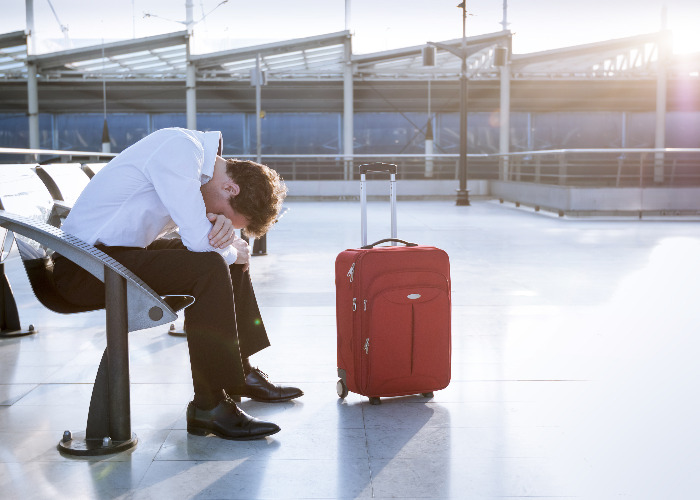Covid travel refund vouchers: holidaymakers urged to spend them before they expire

If you were issued with vouchers by an airline due to cancelled flights during the pandemic, don’t let their value go to waste.
The pandemic saw international travel grind to a standstill, with would-be holidaymakers across the country forced to abandon their hopes of a trip to sunnier climes.
And while that was obviously a big disappointment for people dreaming of heading off somewhere exotic, it also had an impact on their finances, since airlines handled those cancellations in different ways.
Because though the law states that in these situations travellers are entitled to a cash refund, what actually happened was a host of airlines attempted to fob them off by offering vouchers instead.
And it turns out that the airlines are now sitting on huge numbers of unused vouchers.
Unused travel vouchers are worth millions
Reports by the BBC have found that EasyJet and IAG, the owner of British Airways, are holding unused vouchers worth hundreds of millions of pounds.
IAG, which also owns Iberia and Aer Lingus, has said that vouchers worth around £533 million which were issued during the pandemic have yet to be cashed in.
Meanwhile, EasyJet has around £110 million in outstanding vouchers which have not been utilised as yet.
Now, it might be that all of those with outstanding vouchers are about to make holiday bookings and make use of that cash, but that seems a little unlikely.
As a result, there have to be big question marks over how many of those vouchers will ever be used.
Of course, if they aren’t used, then that’s great news for the airlines.
They have taken the money from those holidaymakers already, and if the vouchers aren’t used, they don’t have to actually provide a service at all in return for that cash.
Don’t let your vouchers expire
Clearly, it’s crucial for travellers with these vouchers to make use of them before they expire.
One positive from this situation has been that, by all accounts, none of the vouchers have actually expired thus far.
The airlines involved have repeatedly extended the expiry dates, which is welcome. British Airways has said that its current vouchers will run out in September 2023, though that is regularly under review.
The reality though is that this won’t be the situation forever.
There will come a point when the airlines feel comfortable allowing these vouchers to expire, and when they do, it essentially means free money for those airlines.
As a result, it’s really important that travellers with these vouchers to their name make use of them sooner rather than later.
The airlines have said that they are attempting to remind travellers of their entitlement to the vouchers, in order to encourage them to cash the vouchers in.
But ultimately it’s down to us to make sure that we get something back from the money we have already spent.
loveMONEY comment: a fudge of a fix
To me, this just reinforces the unfairness of issuing vouchers in the first place.
As loveMONEY covered at length during the pandemic, airlines were very keen to offer vouchers rather than cash refunds.
While this was somewhat understandable, given the general uncertainty at the time, it was open to debate whether this really tallied with their legal responsibilities.
In fact, the Competition and Markets Authority was clearly unconvinced that the practice met the regulations, given that it launched a probe into the issue back in June 2021.
Frustratingly, it felt forced to drop the case just a few months later when it became clear that the costs of continuing were too high, given it could not guarantee a positive result for regular people.
Notably, it had been able to force travel agents ‒ who had adopted the same tactic of vouchers rather than refunds ‒ to hand cash back to holidaymakers but wasn’t so confident against the major airlines and their legions of lawyers.
A cash refund would always have been the fairest solution, giving people the option to spend that money however or wherever they wanted.
The reality is that people’s personal situations have changed over the last three years ‒ there will be plenty of people who were up for a flight or two back in 2020 who are no longer able, or simply no longer comfortable, doing so.
The restrictive nature of vouchers, rather than refunds, means these people will be left counting the cost, through no fault of their own.
During Covid, it often seemed like the airlines were able to push and bend the rules to the detriment of normal people.
With travellers facing the potential of a ‘use it or lose it’ situation with these vouchers, I think this is just the latest example of why the oversight of airlines needs to be tightened up.
Comments
Be the first to comment
Do you want to comment on this article? You need to be signed in for this feature